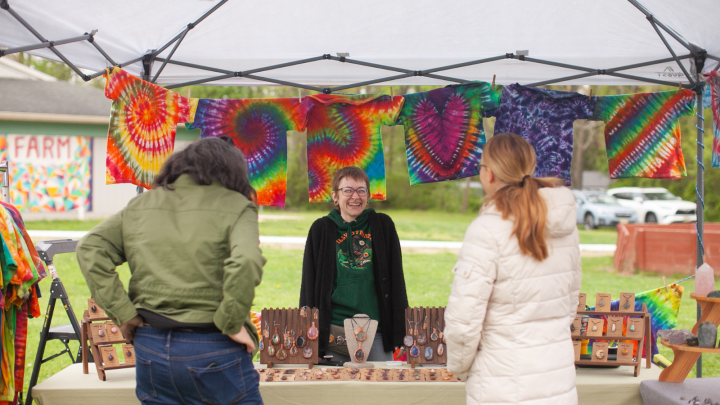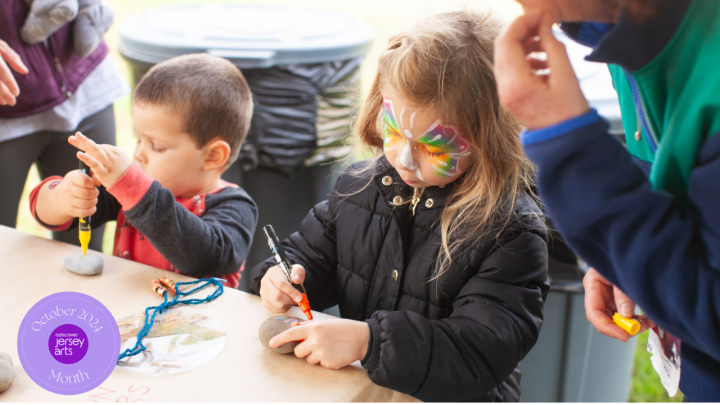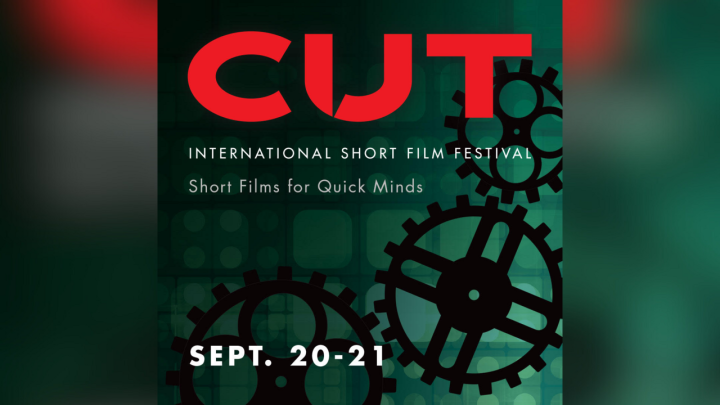The New Jersey One-Minute Play Festival
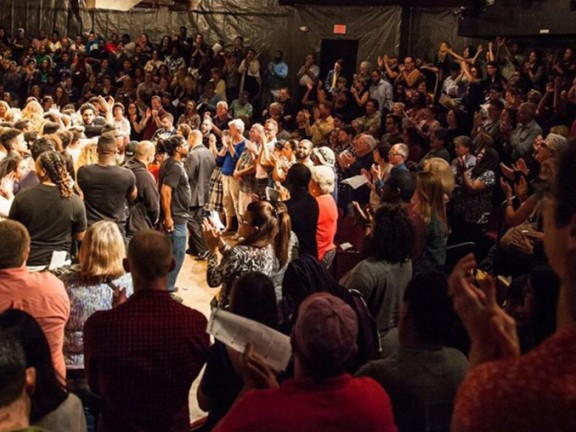

There are a lot of things you can do in a minute. Make a quick phone call. Check the weather online.Or, you know, put on an entire play.
That’s the idea behind The One-Minute Play Festival, a traveling event featuring dozens of plays, one after the other — each 60 seconds long.
Playwright Dominic D’Andrea started the festival about six years ago in New York City. Since then, it’s been staged in cities around the country — Miami, Los Angeles, Chicago, Atlanta, Boston, and San Francisco. Each festival focuses on authors specific to the host region. Writers from David Henry Hwang to Tina Howe to Neil LaBute have contributed pieces throughout the years.
The fest comes to New Jersey for the second year on Sunday, Jan. 22 at 7 p.m., at Mile Square Theater Company at the Monroe Arts Center in Hoboken. More than 20 New Jersey playwrights have penned 50 plays for the evening. Tickets are $20, and can be purchased here. Proceeds benefit education programs by festival presenter The New Brunswick Theater Festival/Collaborative Arts, a New Brunswick non-profit arts organization.
Jersey Arts’ Brent Johnson spoke with D’Andrea about the “Jersey feel” to the festival and how tough it is to distill a play into one minute.
Jersey Arts: So the plays in Hoboken are all by New Jersey writers?
Dominic D’Andrea: They’re either people who reside in New Jersey, have New Jersey roots or went to school in New Jersey. So there’s some connection to New Jersey from all of the playwrights.
JA: Everyone talks about the New York theater scene. But how is New Jersey’s?
DD: It’s interesting, because it really does have its own identity, I think. I’m not a New Jersey native, so [last year’s festival, at Rutgers University] was a big learning curve for me. I didn’t know what to expect. I was very concerned it would be very New York-y.
But there are artists in New Jersey that really have a strong identity that is uniquely New Jersey. It’s not a New York thing, it’s not a Philly thing. It has a New Jersey feel. I think a lot of the writers are very political, they’re very forward. There are very aggressive, strong themes. They’re not afraid to be offensive or funny.
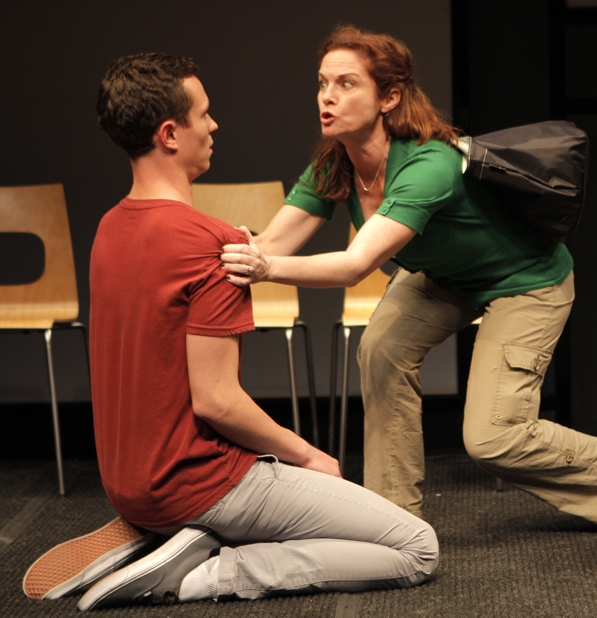
JA: Why one minute and not two minutes?
DD: At first, it was looking at a 10-minute play structure. Thinking, ‘Okay, we watched a 10-minute play, and there’s really only one thing that happened.’ You’re watching nine minutes of material, and you’re waiting for one thing to happen. That was the jumping-off point.
Before I started this festival, there was no serious consideration given to one-minute plays. So we didn’t have examples of this. We had to make our own. The festival has really evolved in the context of its own work.
JA: Are 10-minute plays a popular format?
DD: They are. But for us, looking at one-minute plays is a way for us to get a more inclusive cross-section of writers. One of the principles of the festival is: I never tell them what to write about. I give them structural suggestions or offerings of things that have worked, different ways to approach a one-minute play — which is about building up, rather than cramming a bunch of stuff in. They’re really creating a very specific, very intense, very singular moment — rather than a work that’s about a clock ticking down for 60 seconds. It’s really a festival of moments and a festival of voices.
JA: How are the plays presented at the festival? All in a row?
DD: We’re staging the whole evening with four chairs. And [the plays are divided into] five groups we call ‘clumps.’ A director will be directing 10 one-minute plays by different playwrights. And each director will have a team of actors, and they will perform 10 one-minute plays.
So it will be one director’s work, then another, then another. It’ll be about 30 or so actors, five directors, 50 plays.
JA: So the audience in Hoboken will see 50 plays, one after the other?
DD: Yeah. Lights up — 60 seconds. Lights down — we move the chairs if needed. Lights up — another play. It’s like the whole evening is 50 little pulses of storytelling.
JA: Is writing a play in 60 seconds as difficult as it sounds? Or is it easier than you’d expect?
DD: It’s very hard. The first thing I ask the playwrights to do when I give them the assignment is: Don’t make an assumption about a minute or what that space means. I ask them before they do anything to literally hit a stopwatch a few times. Sit with that space, so they know exactly what it feels like for them — that they create a unique relationship to that space and they know how to fill it. People that say, ‘Oh, it’s only a minute,’ they won’t be as successful because they really haven’t discovered what that time value is.
A minute can be an extraordinarily long time if you’re really focusing on something specific. So I ask them to know what it is before they start. Then I ask them to build up from the smallest possible unit. Pick a word or a gesture or a line or a song or an image or something where they can anchor the play and build up from that point.
And it can be incredibly difficult. I would say some writers go through four or five or six drafts of a one-minute play before they make it into the rehearsal process. It’s a lot of work. It’s much more crafted than one would imagine.
JA: What’s the most memorable minute you’ve seen at these festivals?
DD: [laughs] Recently in San Francisco, a playwright by the name of Lauren Gunderson wrote a one-minute musical. It was the finale to that festival, and it was pretty incredible. It was an a cappella musical that sort of included everything a full-length musical would have in a minute. It was very compelling. Very funny.
JA: Is it amazing to think how much this festival has grown since the first one in New York?
DD: It’s incredible. I literally started this out of a need. There was a need in our community [in New York] to have a community-centering event. When it became popular, I started getting calls from theaters asking if I wanted to do a full contract.
But I thought that felt kind of sell-out-y. Going back to the goals of why I started it, it was a community event. What makes this exciting, why people buy into it is because it is about the community that it’s in. So I thought, ‘Hey, if I’m going to go around the country, I can’t tour the works I already have. I have to make it with them.’ Thus, in every city, it’s all focused on the local voices of those writers and the vision of the actors and directors.
The New Jersey One-Minute Play Festival will be performed in Hoboken on January 22. Click here for tickets.
A full list of Festival playwrights:
Ian August (Highland Park), Erica Berman, James Christy (Princeton), Claire Drobot (New York), Brian Dykstra (Rutgers alum), Jonathan Elliott (Westmont), Alex Gherardi, Jacqueline Goldfinger (Philadelphia), Jon Hoche (Montclair), Lisa Humberman (Rutgers alum), Peter Handy (Rutgers alum), Chisa Hutchinson (Newark), Stacie Lents (Rutgers alum), Josh Levine (New Brunswick), Dano Madden (Hoboken), Raymond McAnally (Rutgers alum), Carrie Louise Nutt (Madison), Nicole Pandolfo, Joe Paprzycki (Camden), Barry M. Putt, Jr. (Somerset), Matt Schatz (Turnersville), Brendon Votipka (Rutgers alum), David Lee White (Bordentown), and Pia Wilson (Montclair).
Photo Credit: The 5th Annual New York One-Minute Play Festival with Primary Stages at 59e59 Theatres. Photo by Larkin Clark

